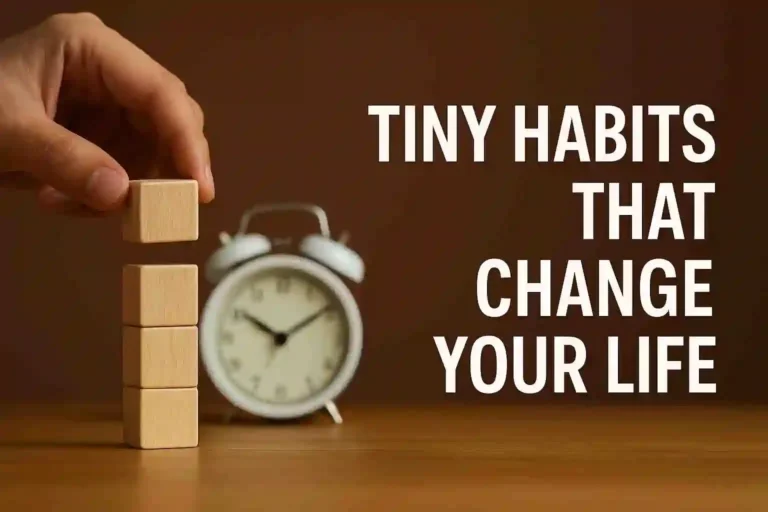How to Handle Criticism When Trying Something New
Learning how to handle criticism is one of the most important skills when you’re trying something new. Whether you’re starting a new job, launching a business, or exploring a personal hobby, criticism will come your way. And while some feedback can help you grow, other comments might shake your confidence. In this guide, we’ll show you how to deal with both—without losing motivation or self-belief.
In this article, we’ll break down what criticism really means, the different types, and how to deal with it in a healthy, confident way.
What Is Criticism?
Criticism is when someone gives feedback—positive or negative—about what you’re doing. Not all criticism is bad. Some of it can help you improve. But other times, it can feel like an attack.
There are two main types of criticism:
- Constructive criticism: Helpful advice meant to guide you or help you grow.
- Destructive criticism: Negative comments with no intention to help—just to bring you down.
Example: If you’re starting a YouTube channel and someone says, Your video editing is great, but you could work on your sound—that’s constructive. But if they say, This is trash, just quit—that’s destructive.
Why Criticism Feels So Personal
When you try something new, you’re putting yourself out there. It’s natural to want approval. So when someone criticizes your work, it can feel like they’re criticizing you. But here’s the truth: You are not your work. Learning to separate your self-worth from others’ opinions is key to growing your self-confidence.
How to Handle Criticism With Confidence
1. Pause Before Reacting
Our first instinct might be to defend ourselves. But reacting too fast can make things worse. Take a deep breath. Give yourself a moment. This shows maturity and emotional intelligence, which is a powerful skill in both personal and professional life.
2. Ask Yourself: Is This Helpful or Hurtful?
Try to figure out if the feedback is something you can use to improve. If it’s helpful, thank the person (even if it stung). If it’s just mean-spirited, remind yourself it says more about them than you.
Tip: Not everyone giving feedback is an expert. Some are just passing opinions based on limited knowledge.
3. Focus on the Message, Not the Tone
Sometimes, helpful feedback is given in a harsh tone. If there’s a useful message inside the delivery, try to focus on that. It takes practice, but it helps you stay in control.
4. Surround Yourself With Supportive People
If you’re always hearing negativity, it can crush your spirit. Seek out mentors, friends, or communities who support your goals. They’ll help balance out the noise and offer positive reinforcement.
5. Use Criticism to Improve, Not Quit
Many successful people were once told they wouldn’t make it. What made the difference? They learned from criticism without letting it stop them.
Real-life example: J.K. Rowling, author of Harry Potter, was rejected by multiple publishers. Instead of giving up, she kept improving her manuscript. The result? A billion-dollar franchise.
Boosting Your Growth With Smart Responses
Here are some polite ways to respond to criticism:
- Thanks for the feedback. I’ll think about that.
- I see your point. I’ll work on it.
- I appreciate your honesty. I’ll take it into consideration.
These responses show you’re open to learning but not easily shaken. This is a great way to manage your online reputation and appear more professional in public or social media interactions.
Don’t Let People Push You Around
Sometimes, criticism comes from people who just want to control your choices. If you’re feeling overwhelmed by constant demands or opinions, it might be time to set boundaries.
To help you grow while also making the most of your online journey, here are some valuable keywords and ideas to explore further:
- Self-confidence coaching: Learn how to believe in yourself even when others don’t.
- Emotional intelligence training: Helps you control emotions when facing negative feedback.
- Online reputation management tips: Protect your digital image as you try new things.
- Mental resilience techniques: Stay strong in the face of judgment.
- Performance feedback tools: Use data to improve rather than rely on vague opinions.
Final Thoughts
Criticism will always be part of the journey when you’re trying something new. But you have a choice: let it break you, or let it build you. No matter your journey, learning how to handle criticism can shape your mindset and strengthen your personal growth. The key is to stay open to learning, protect your mental peace, and know that your value isn’t defined by others’ words.
Mastering how to handle criticism is a lifelong skill that opens the door to confidence, resilience, and success. Trying something new already makes you brave. Don’t let criticism take that away.
Share your favorite moments with us on Instagram!
Don’t keep this to yourself—share it with a friend!
























